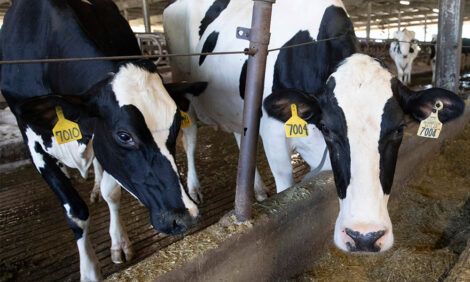



Global finance firms continue to fuel deforestation, report warns
Pulp in Indonesia, beef in Brazil among areas of concernThe world's largest financial institutions increased their backing of companies in the agriculture, forestry and land use sectors most responsible for deforestation in 2021, Reuters reported, citing a new study showed on Tuesday.
Issued by the Forests & Finance Coalition of NGOs, which looks to improve transparency, policies, systems and regulations in the financial sector, the report found that finance to those companies rose over 60% to $47 billion between 2020 and 2021.
The analysis comes ahead of the next round of global climate talks in November at which protection of rainforests and other climate-crucial biodiversity are set to be a central theme.
Banks have pumped $267 billion into forest-risk commodity firms since the signing of the Paris Agreement on climate in 2015, the study said, while investors were holding $40 billion in bonds and shares as of September this year.
"The world's financial institutions are actually increasing their lending to the very industries driving humanity to the brink," Tom Picken, director of Rainforest Action Network's Forest and Finance Campaign, said in a statement, citing "dangerously inadequate" policies.
Forests & Finance policy assessment of 200 financial institutions exposed to companies working in areas at risk of deforestation in Latin America, Southeast Asia and West and Central Africa scored 59% of them under one out of 10, sign of "an abject failure" to mitigate environmental, social and governance (ESG) risks.
In Indonesia, for example, southeast Asian pulp and paper producers are continuing to expand production, putting the country's remaining forests under pressure; while in Brazil, the beef industry has contributed to 80% of the Amazon deforestation since 1985, the report said.
Finance firms' policies on providing credit or investment to both sectors were "very weak", the study also noted, and have done little to avert environmental degradation, support indigenous peoples' and local communities' rights or ensure companies are not exploiting people through forced labour.
"This latest assessment shows how big banks and institutional investors are blind to the urgency of the moment," Picken stated.



